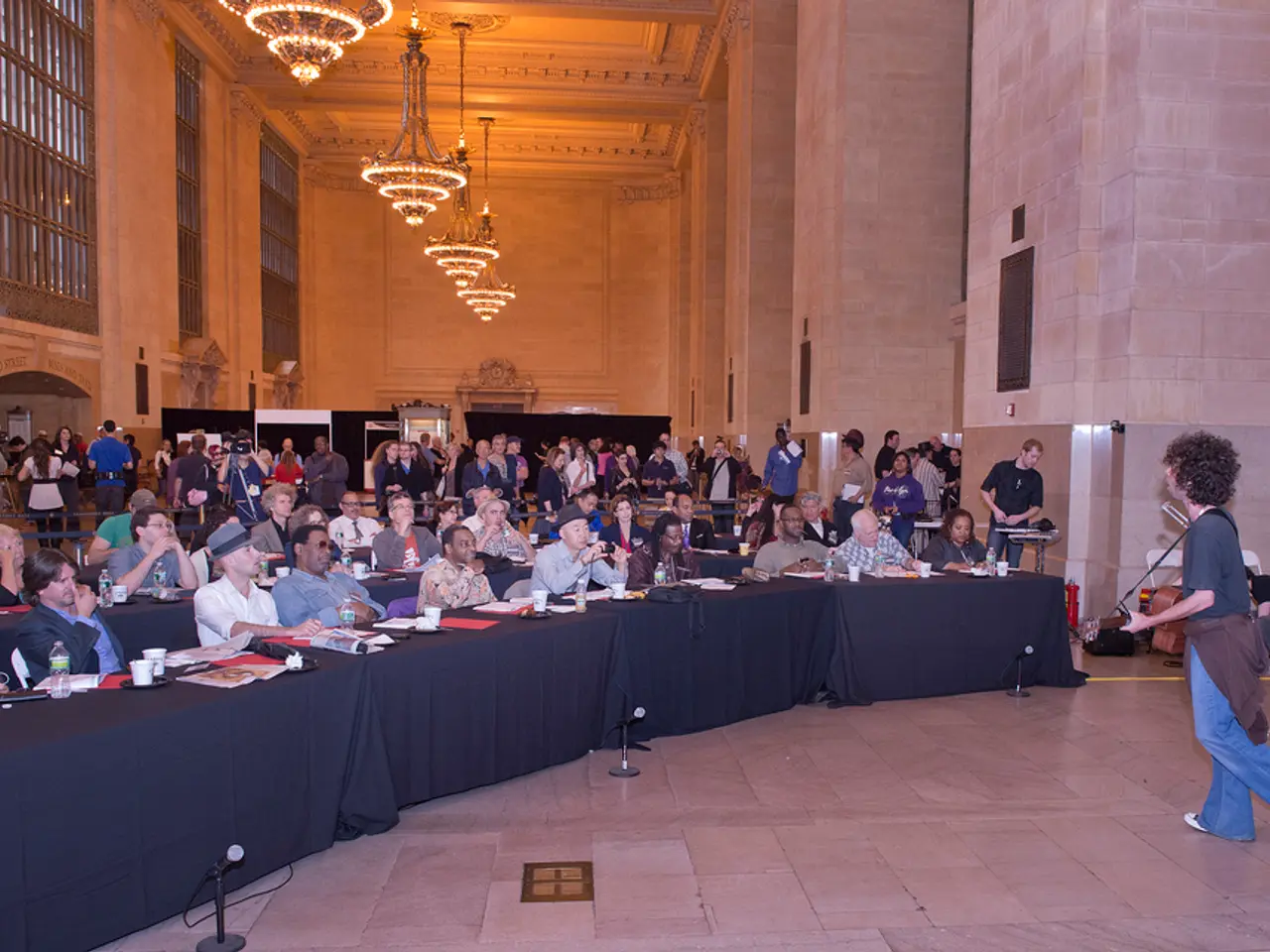Escaping Toxicity: Unveiling Novel Platforms in the Social Medium Landscape
In the digital landscape, two emerging social networks - Qwice from France and New Place from Canada - are making waves with their commitment to positive social impact and enhanced user control. Although specific details about their economic models and objectives are not yet fully disclosed, we can outline key points based on the general context of alternative social networks and the digital/social environment in France and Canada.
Prioritizing User Control and Privacy
Both Qwice and New Place emphasize giving users control over their data, privacy, and the algorithmic curation of content. This contrasts with mainstream networks where proprietary algorithms dictate content visibility. By empowering users, these platforms aim to foster healthier, more constructive digital interactions, often prioritizing community well-being, mental health, and reducing harmful misinformation or polarization.
Local Focus and Digital Sovereignty
In line with local digital sovereignty goals, Qwice and New Place may align their mission with national or regional digital infrastructure and cultural values. In France, the government strongly supports expanding digital connectivity and digital sovereignty, aiming for extensive fiber coverage and the development of digital infrastructure via strategic initiatives like France Très Haut Débit. This environment creates fertile ground for homegrown platforms like Qwice to evolve with national policy support.
In Canada, there is growing awareness of digital equity and local innovation in social platforms, often tied to broader social policy goals and evidence-based policymaking approaches common in North America.
Sustainable and Ethical Monetization
Unlike ad-driven models fueling many big social networks, alternative networks often explore member subscriptions, ethical advertising standards, or non-profit funding to reduce incentivization of harmful content. Qwice is registered as a SAS and aims to have a similar economic model to X, with advertising revenues and subscription options. New Place, on the other hand, aims for a more radical model through a non-profit cooperative, seeking to regain control over platforms.
Shaping the Future of Social Networking
As the history of social networks is still young, Qwice and New Place represent innovative steps towards a more user-centric, sustainable, and ethically sound digital future. Their commitment to transparency, control, and positive impact sets them apart in an era where trust in traditional social networks is waning. As more concrete data on these platforms becomes available, we will gain a clearer understanding of their role in shaping the future of social networking.
[1] France Très Haut Débit: https://www.francetreshautdebit.fr/ [2] Scrutiny of large platforms in France: https://www.reuters.com/business/media-telecom/france-considers-regulating-twitter-facebook-over-influence-public-discourse-2021-07-15/ [3] Bill C-18 in Canada: https://www.canada.ca/en/government/news/2023/03/historic-legislation-introduced-to-support-canadas-news-media-industry.html [4] New Place's refusal to use American services: https://www.lemonde.fr/informatiques/article/2021/12/16/le-social-network-francais-new-place-vise-a-se-differencier-des-gros-reseaux-americains_6182812_4412340.html [5] Digital equity and local innovation in Canada: https://www.canadiancouncilforthearts.ca/en/research-reports/digital-equity-and-local-innovation-in-canada
- Qwice and New Place don't just focus on enhancing user experience, but they also prioritize user control over data and privacy, setting them apart from mainstream social networks that rely heavily on proprietary algorithms for content visibility.
- Aligning with local digital sovereignty goals, Qwice, being a French platform, seeks to evolve under the support of national policy initiatives like France Très Haut Débit, while New Place in Canada includes a mission akin to local digital equity and innovation.
- Leveraging member subscriptions, ethical advertising standards, and non-profit funding to reduce incentivization of harmful content, these alternative networks like Qwice and New Place forge a sustainable and ethical monetization path.
- The socially impactful objectives of Qwice and New Place contribute to a more constructive digital interaction environment, targeting community well-being, mental health, and reducing potential misinformation or polarization.
- With their commitment to transparency, adherence to user control, and positive impact, Qwice and New Place signify innovative steps in shaping a user-centric, ethical, and sustainable digital future for social networking.
- The waning trust in traditional social networks prompts a growing interest in alternative platforms, such as Qwice and New Place, which are poised to play significant roles in the future of social networking as more data becomes available.
- In addition to social networking, various dimensions of modern life (fashion-and-beauty, food-and-drink, technology, travel, education-and-self-development, entertainment, online-education, learning, sports, and even casino-and-gambling) are also being impacted by this movement towards user-centric, ethical, and sustainable digital experiences.




